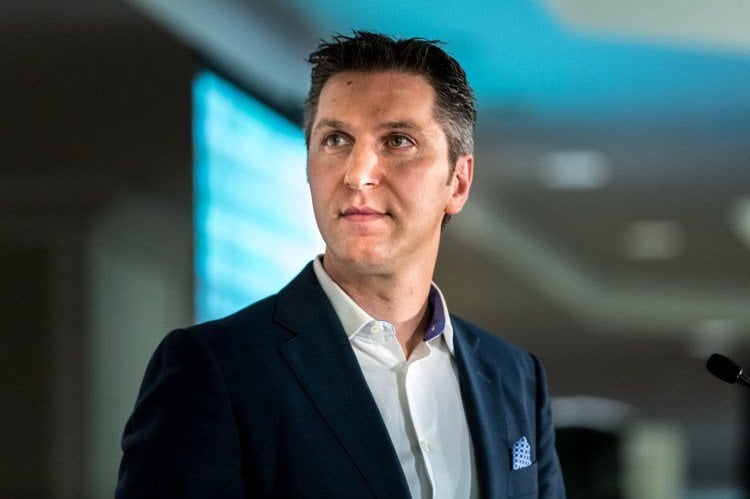Amaya CEO David Baazov is Bullish on Company’s Stocks, Snaps Up Paper Following Price Drop
Posted on: November 18, 2015, 11:37h.
Last updated on: November 18, 2015, 12:13h.

David Baazov has been called the “King of Online Gambling” by Forbes, and now the 35-year-old Amaya CEO is hoping to prove his business savvy and managing of the largest poker network in the world will translate to big gains on Wall Street.
After Amaya slashed its 2015 economic earnings forecast on the heels of a stronger US dollar, shares of the company plummeted on both the Toronto and NASDAQ stock exchanges.
Investors fled the gaming conglomerate, fearing the strengthening American currency wasn’t the only culprit responsible for a 13 percent revenues cutback projection.
Baazov isn’t fazed, and is out to prove investors wrong. Just two days after Amaya stock fell 30 percent, the Canadian CEO purchased 60,000 common shares on the Toronto Stock Exchange at CA$20.30 ($15.22) per share for a transaction total of $912,798.
Fools Rush In
Several market analysts agree with Baazov that Amaya is ripe for picking by capitalists looking for a growth stock with considerable potential. One of those experts is Nelson Smith, a writer for The Motley Fool in Canada.
“Between its PokerStars and Full Tilt Poker platforms, it commands about 70 percent of the market,” Smith writes on the investing website. “That’s the kind of market share any investor likes to see.”
Smith does raise concerns over Amaya’s massive debt, primarily the fact that it’s in American currency, meaning continued strengthening of the US dollar would prolong the company’s fulfilling of those obligations.
But potential growth outweighs the debt risks, at least in Smith and Baazov’s eyes.
“I like when management owns a large position in the stock since they’ll likely be motivated to increase the price,” Smith concludes.
Cautionary Tale
Before you go all-in on Amaya, be warned that The Motley Fool also published an article titled “Why I Just Made a Big Bet on Amaya Inc.” just hours before the stock lost 30 cents on the dollar.
Writer Benjamin Sinclair made the ill-timed post, and admitted to his error two days later by saying, “My timing could not have been worse.” But like Smith and Baazov, he too believes investors overreacted to the 13 percent earnings reduction and the stock is now a bargain.
“For these reasons, I have increased my position in Amaya,” Sinclair said on his doubling down. “So far, I am wrong on my bet, but I believe the opportunity is even more attractive.”
Zacks Investment Research disagrees with the aforementioned pundits, its independent analysts downgrading Amaya from a “hold” to “sell” rating on Monday.
That might be bad news for Baazov, who owns 12 percent of Amaya’s issued and outstanding common shares, as well as for Smith and Sinclair who also own its stock, albeit on a much smaller scale.
Amaya has slightly rebounded, the stock trading on Wednesday at around $16 on NASDAQ, up about $1 since it reached its cheapest valuation since acquiring PokerStars and Full Tilt in June of 2014.
Perhaps the most famous investor of our time said it best: “It’s far better to buy a wonderful company at a fair price than a fair company at a wonderful price,” Warren Buffett once stated.
The challenge now is determining if Amaya is a wonderful or fair company.